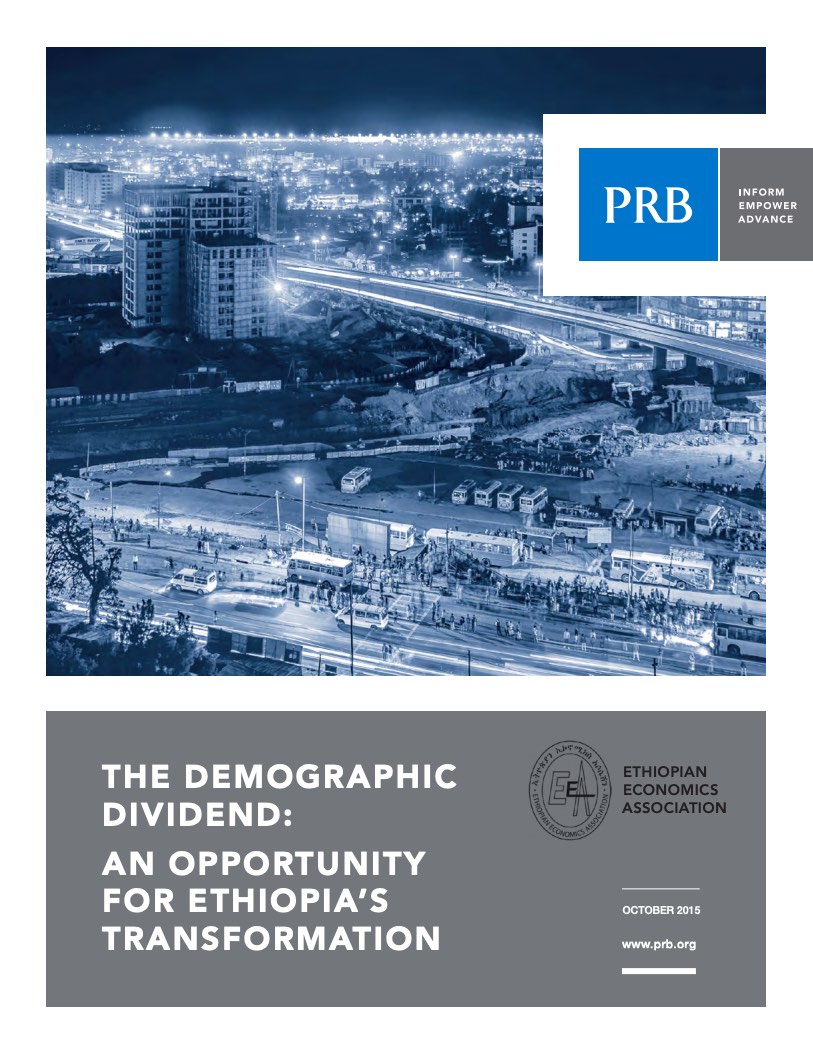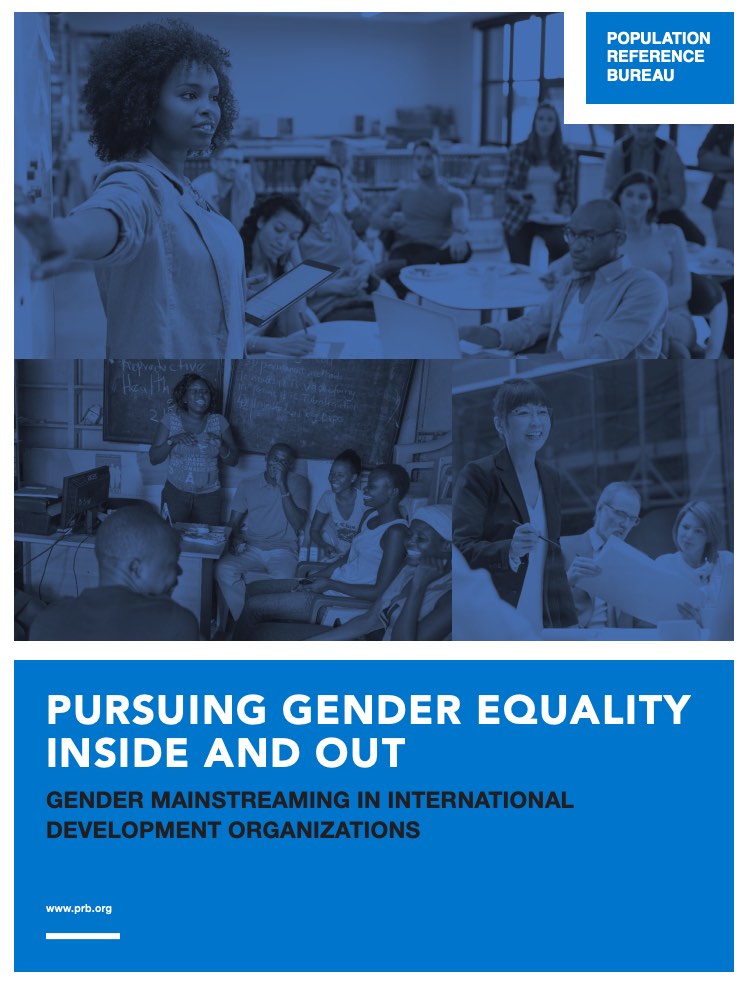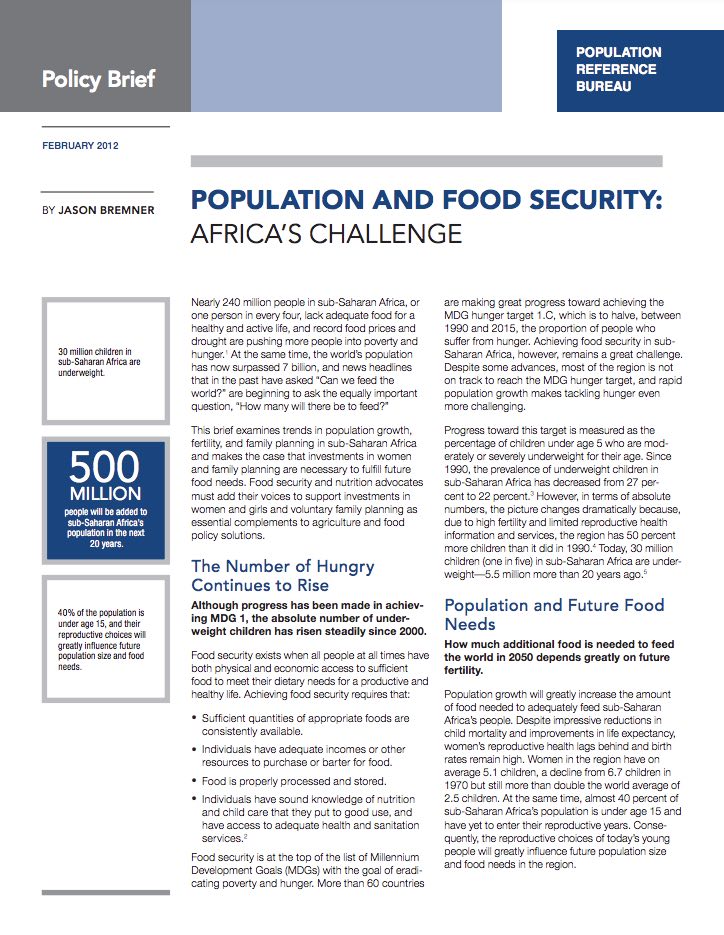PRB @ PAA 2024 Annual Meeting
Dates: April 17-20, 2024 Columbus, OH

Project: Supporting Population Evidence and Champions in Africa (SPEC)
A demographic dividend in Ethiopia would contribute to the long term economic and social development of the country. But a demographic dividend hinges on job growth: Ethiopia's economy must be able to absorb the large number of people reaching working age over the next several decades.
Engaging men as clients, partners, and agents of change can increase family planning use, improve health outcomes for men and women, strengthen families and communities, advance gender equality, and transform gender norms.
(2011) Without gender statistics that measure the status of women and men and their roles in social, economic, health, and political spheres, we have limited ability to assess progress in achieving gender equality or in prioritizing actions to address gender disparities.

This paper is a resource to help those interested in gender mainstreaming learn what tools and resources are available to initiate, support, and sustain that process.
(2010) In April 2010, the Institute for Health Metrics and Evaluation (IMHE), a research center at the University of Washington, released estimates showing unexpected declines in global maternal mortality compared with previous UN estimates.

(2012) Nearly 240 million people in sub-Saharan Africa, or one person in every four, lack adequate food for a healthy and active life, and record food prices and drought are pushing more people into poverty and hunger.1 At the same time, the world’s population has now surpassed 7 billion, and news headlines that in the past have asked “Can we feed the world?” are beginning to ask the equally important question, “How many will there be to feed?”